Farming’s Dirty Needs Have a Deadly Effect
Researchers say air pollution from the use of vital fertilizers means that fossil fuel emissions must be reduced if we are to feed the world’s growing population.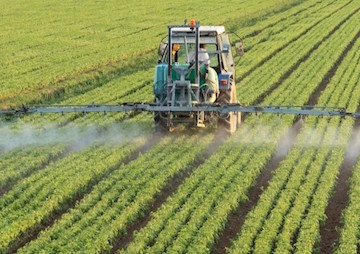
By Tim Radford / Climate News Network
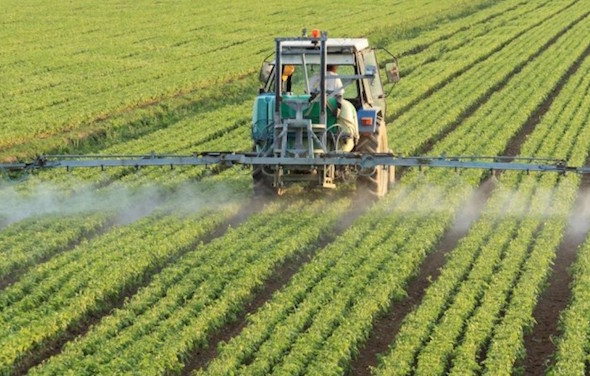
Fertilizers are a major contributor to air pollution in the United States, Europe, Russia and China. (U.S. Bureau of Labor Statistics)
This piece first appeared at Climate News Network.
LONDON — Farming is a dirty business — so dirty now that, according to new research, air pollution from agriculture in the form of fine particles of lung-choking dust outweighs all other human sources of that kind of pollution.
These particles are calculated to cause around 3.3 million deaths a year worldwide — and most of this lung-penetrating murk is from fertilisers. Back in 1950, the world produced 20 million tons of artificial fertilisers, but farmers now spread on their fields every year around 190 million tons.
Ammonia from the nitrogen-based compounds gathers in the air, and combines with the sulphates and oxides of nitrogen from the combustion of fossil fuels and wood smoke to make tiny aerosols, each around one-thirtieth of the thickness of a human hair.
Global problem
Susanne Bauer, a research scientist at Columbia University Earth Institute in New York, and colleagues report in Geophysical Research Letters that they looked at the global problem of particulate pollution.
And they assessed the challenge ahead for a world in which more mouths must be fed — the planet’s burden of humans will reach and perhaps surpass 9 billion this century — at the same time as more cities are built, with more roads, more factories and more cars.
Paradoxically, things could get better, but only if greenhouse gas emissions begin to fall — and, with them, the other products of combustion.
“We expect population to go up, and to produce more food we will need more fertilizer.”
“This is not against fertiliser,” Dr Bauer says. “There are many places, including Africa, that need more of it. We expect population to go up, and to produce more food we will need more fertiliser.”
The atmosphere is a vast chemical retort in which many reactions take place, one of these being the invisible fabrication of solid particles a trifling 2.5 micrometres in diameter.
Quite how it happens, and on what scale, depends on temperature, rainfall, season, time of day, wind patterns and the proportions of wind-borne farm fumes and the other input from industrial or natural sources, such as desert dust, sea spray or wildfire.
The researchers’ calculations predict that — as nations take action to limit climate change — there will be tighter regulation of greenhouse gas emissions, with cleaner electricity from renewable sources, and therefore lower accompanying releases of particles.
So even as growers and livestock farmers put more fertiliser on the land, and more potential pollution into the air, one half of the reaction will be reduced.
Ammonia emissions
“You might expect air quality would decline if ammonia emissions go up, but this shows it won’t happen, provided emissions from combustion go down,” says Fabien Paulot, an atmospheric scientist at Princeton University, who did not take part in the study.
But this doesn’t mean farmers can go on as before. Agricultural pollution washes into the world’s rivers, to choke and pollute deltas and coastal waterways. So pressure will remain for farmers to apply their fertilisers sparingly, and as efficiently as possible.
Researchers have been exploring scenarios for agriculture in which food production goes up, but all forms of emissions continue to fall.
But, with luck and with cleaner air from the cities, the excess ammonia will simply soar to up to 10 kilometres above the surface.
Lightning strikes and other processes will still make fine particulate, ultimately to be washed away by rain. “But it will be so high it won’t be a problem for us,” Dr Bauer says.
Tim Radford, a founding editor of Climate News Network, worked for The Guardian for 32 years, for most of that time as science editor. He has been covering climate change since 1988.
Your support matters…Independent journalism is under threat and overshadowed by heavily funded mainstream media.
You can help level the playing field. Become a member.
Your tax-deductible contribution keeps us digging beneath the headlines to give you thought-provoking, investigative reporting and analysis that unearths what's really happening- without compromise.
Give today to support our courageous, independent journalists.
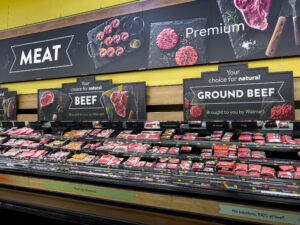
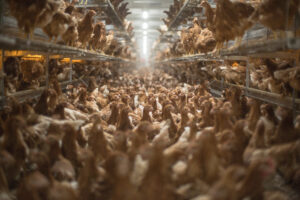
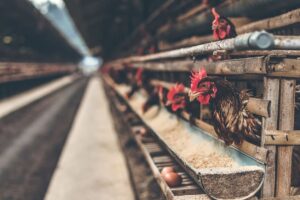

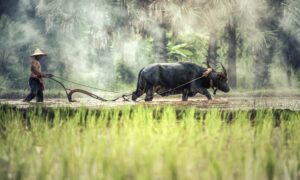

You need to be a supporter to comment.
There are currently no responses to this article.
Be the first to respond.